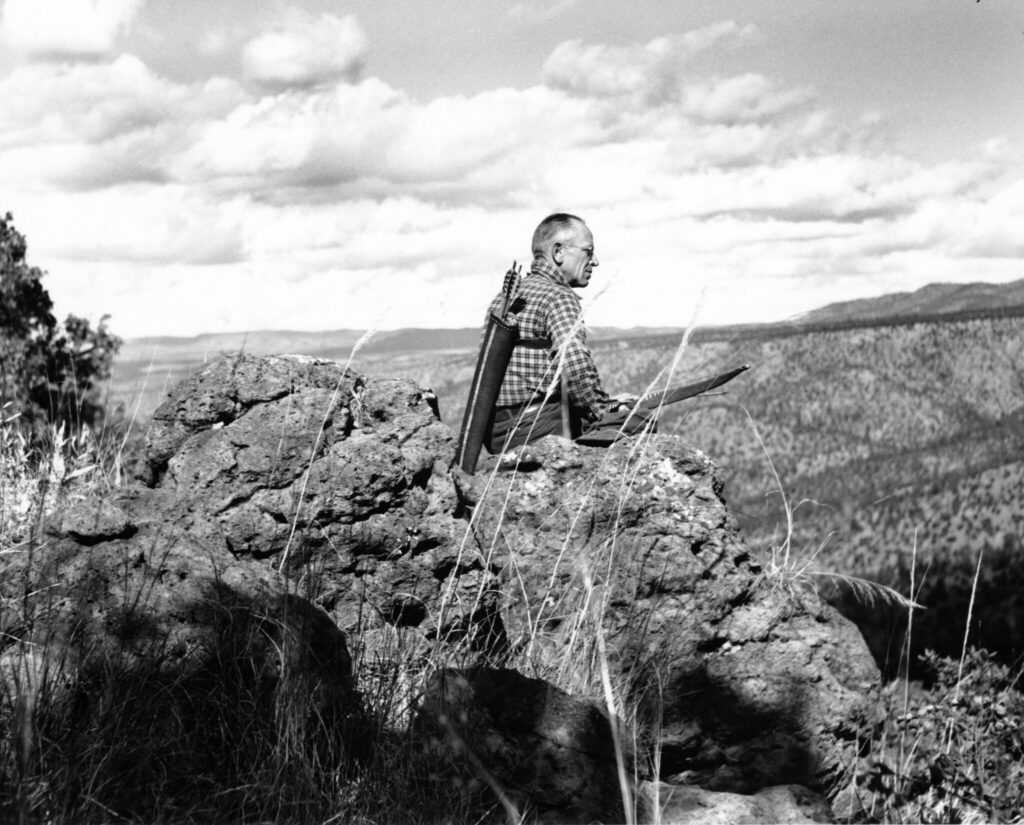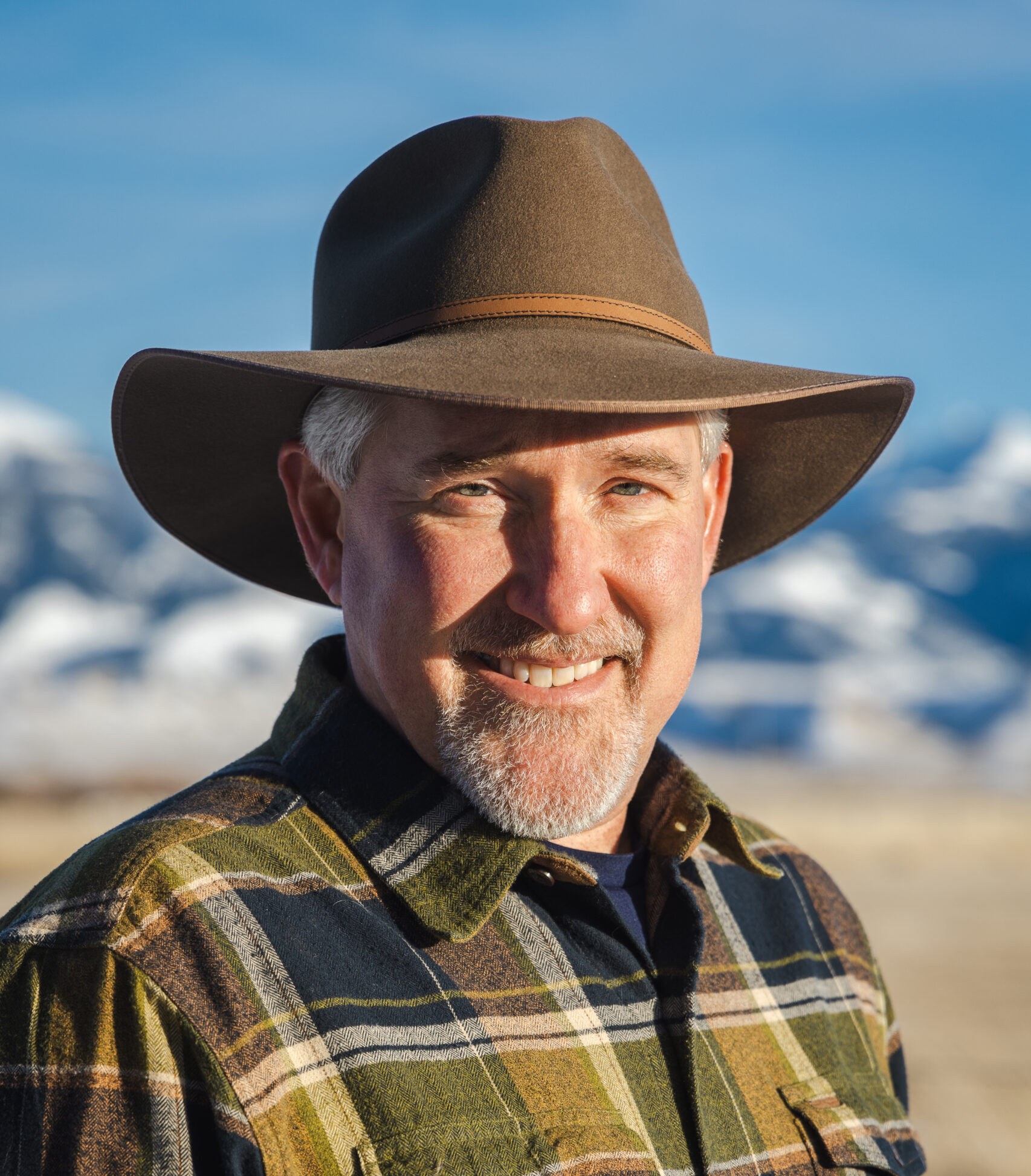Tomorrow we celebrate the anniversary of the birth of America’s great conservationist Aldo Leopold.
Leopold was many things: a Yale-educated forester with the U.S. Forest Service, the nation’s first professor of wildlife management at the University of Wisconsin, and the author of a famous collection of essays published in 1949, A Sand County Almanac, widely considered a conservation classic. He is credited with being the father of wildlife ecology and the impetus behind our nation’s protected wilderness areas. Leopold was perhaps best known for his essay “The Land Ethic,” which called for a moral responsibility for nature. Like Abraham Lincoln or Theodore Roosevelt, he is an often-quoted figure, conjured up for his wisdom and wordsmithing.
The 133rd anniversary of his birth marks the perfect occasion to revisit some of the wisdom from a man who saw conservation not as a sound bite, but through a holistic lens that encompassed philosophy, economics, politics, and science. His writings featured a range of evolving ideas, sometimes competing with and sometimes complementing each other.
First, there’s no doubt that Leopold would be impressed by the swelling ranks of public land supporters today. He believed that every state in the nation should have at least one wilderness preserve, and he was an advocate not just for public land, but healthy public land, be it range, river, or forest.
But a sometimes critic of the New Deal, Leopold also staunchly recognized the limits of government. He saw the availability of private land to be purchased by government as an insatiable “drug on the market.” And in “Conservation Economics,” a 1934 commentary on federal land-acquisition programs that served as precursors to the Land and Water Conservation Fund, he wrote:
Let it be clear that I do not challenge the purchase of public lands for conservation. … I do challenge the growing assumption that bigger buying is a substitute for private conservation practice. Bigger buying, I fear, is serving as an escape-mechanism—it masks our failure to solve the harder problem. The geographic cards are stacked against its ultimate success. In the long run it is exactly as effective as buying half an umbrella.
Second, and following this line of reasoning, he was a proponent of private land stewardship—the other half of the umbrella. He saw that the landowner role in conservation was critical, and economics, as much as ethics, played a role. Specifically, Leopold noted in “Conservation Economics” that “incentives are more promising than penalties” and “conservation will ultimately boil down to rewarding the private landowner who conserves the public interest.” And he called on economists to “anticipate the need for workable vehicles to carry that reward”—essentially a call to action for research-based organizations like PERC.
When it came to wildlife management, he said, “Recognize the landowner as custodian of public game on all [non-public] land, protect him from the irresponsible shooter, and compensate him for putting his land in productive condition.” And Leopold noted that “only the landowner can practice management efficiently, because he is the only person who resides on the land and has complete authority over it.” When it came to the land, he suggested, “When land does well for its owner, and the owner does well by his land; when both end up better by reason of their partnership, we have conservation. When one grows poorer, we do not.” He was simply suggesting that conservation should pay, something that conservationists like Ted Turner seek to make work because conservation that pays is long lasting.
Third, ahead of his time, Leopold knew the value of conservation markets and the potential for the emergence of a more conservation-minded or amenity-based consumer. In “The Conservation Ethic,” he wrote, “Economic laws may be permanent, but their impact reflects what people want, which in turn reflects what they know and what they are.” He used this reasoning to suggest that lumbermen could market wood “to keep mountains green,” that wools produced in greener pastures could outcompete wools produced “by gutting the public domain,” and that paper manufacturers who don’t pollute rivers could charge extra for “clean” newspapers. Today, our economy swells with products, be they Subarus or fish, marketed based on their sustainable production, support, or use.
What more can we take from the consequential Aldo Leopold today? As a final thought, Leopold seemed to stand for the notion that conservation is not an either-or proposition. With his own “green fire,” he encouraged and even practiced conservation experimentation. He saw cooperative roles for the private landowner, the public, the environmentalist, and the sportsman.
More relevant today, he defended both the need for public conservation for the public good and private conservation that could entail compensation. In 1930, Leopold recognized these as two opposing schools of thought working to nullify each other because “the proponents of each have insisted that the two ideas cannot coexist; that one must prevail to the exclusion of the other.” Rather, in defending both, he advocated for a spirit of mutual cooperation that might “bend the two hitherto opposing schools of thought to a new and common direction.” In sum, Aldo Leopold was for healthy public lands and healthy private lands, and in today’s divisive political climate, that seems to be a sensible conservation principle we can all get behind. Happy Birthday, Mr. Leopold.




